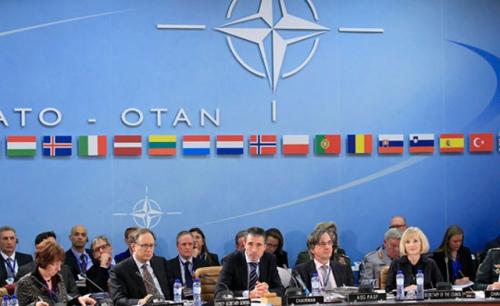
From Richard LeBaron, Viewpoint: The heavily-qualified December 4 decision by NATO to dispatch Patriot missile batteries to Turkey’s border with Syria reflects a pattern of reluctance by the Alliance to involve itself in the messy conflicts of the Middle East. In announcing the decision, NATO Secretary General Anders Fogh Rasmussen emphasized all the things the Patriot battery would not do: not be a prelude to a no-fly zone, not be fired at aircraft but only at missiles, not be used over Syrian territory, and so on. Even the symbolic aspects of the NATO move seemed diminished by the rush to publicly downplay the military significance of the deployment, taken nearly a month after Turkey broached the idea. One wonders, then, what the Secretary General actually meant when he chimed in to support the Obama administration’s warning to the Syrian regime not to use its chemical weapons against its citizens. Rasmussen stated that he would expect "an immediate reaction from the international community." He did not say that NATO would take any concrete action.
NATO’s ambivalence towards involvement in Syria and other conflicts in the Middle East reflects the Alliance’s troubled experience figuring out how to play a useful role in the region, and its spotty record in developing partnerships with countries in the Middle East and North Africa. NATO’s assistance to the Libyan rebellion, seemingly a good example and perhaps a model of working together with Middle Eastern states to pursue a shared interest, turns out to be an aberration that was largely prompted by strenuous arm-twisting by the US allies in the Gulf, particularly Qatar and the United Arab Emirates. The action did not spring from NATO planning or a broad shared interest among NATO members, and NATO quickly exited the scene as soon as possible after Qadhafi was killed, in some ways contributing to the security chaos that ensued. . . .
Does NATO Have a Role?
Given NATO’s lack of ambition to involve itself in the key security questions in the region and continuing reduction of military spending by Alliance members, it makes sense to ask whether NATO should even attempt to play a formal role in the MENA region, or whether it should focus its efforts elsewhere. If Alliance members want to continue the dance with the Middle East, they will need to deal with some fundamental questions in order to restore credibility to the effort. These include a better definition of what Middle Eastern partners should expect from NATO. Would NATO join a coalition of Arab states to bring down Assad in Syria? Unlikely, given US unwillingness to put troops into Syria. Will NATO be there should Iran attack Kuwait or Saudi Arabia? Not likely. Or does the informal security umbrella provided by the US to Gulf states serve as an adequate substitute for a NATO role? Should the NATO role be limited primarily to the provision of training opportunities for willing MENA militaries? While political dialogue is often cited as an important part of NATO partnerships, in the case of the Middle East, the political dialogue has lacked clarity and risks undercutting its own value. If there is to be a political element, NATO might be best served by a focus on nurturing ties to those states in the region with genuine military capabilities and the will to use them against common adversaries. NATO, with US leadership, needs to clarify its mandate and ambitions for its Middle East partnerships, or risk a continuing loss of credibility in the region.
Richard LeBaron is a Visiting Senior Fellow at the Rafik Hariri Center for the Middle East of the Atlantic Council and served as US Ambassador to Kuwait from 2004 to 2007. (photo: Reuters)
Image: reuters%2012%205%2012%20NAC%20Turkey%20Patriot%20decision.jpg
